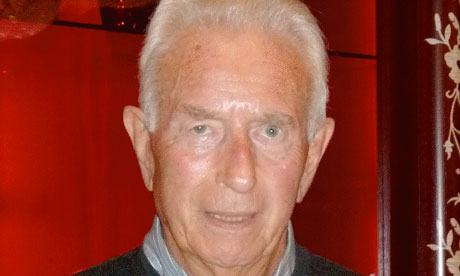Are You Eating Fish Caught By Slaves?

Last March, Yusril, a 28-year-old expectant father from Indonesia signed up to work on a commercial fishing vessel of the New Zealand coast, a major source of seafood for the U.S. market. The recruiter rushed Yusril through the paperwork so quickly that he didn’t notice that the fine print made him a de facto prisoner aboard a South Korean fishing boat.
The contract was set up to trap him: The company reserved the right to send him home and bill him $1000 if they found his work unsatisfactory. He wouldn’t get paid for the first three months, so there was little chance he could cover the fine. If he jumped ship, his family would have to pay $3500, a sum that exceeded their net worth. Yusril had already mortgaged their land to post the $1000 bond.
E. Benjamin Skinner reports for Bloomberg Businessweek:
What followed, according to Yusril and several shipmates who corroborated his story, was an eight-month ordeal aboard the Melilla 203, during which Indonesian fishermen were subjected to physical and sexual abuse by the ship’s operators. Their overlords told them not to complain or fight back, or they would be sent home, where the agents would take their due. Yusril and 23 others walked off in protest when the trawler docked in Lyttelton, New Zealand. The men have seen little if any of what they say they are owed. Such coerced labor is modern-day slavery, as the United Nations defines the crime. (The South Korean owners of the Melilla ships did not respond to requests for comment.)
The experiences of the fishermen on the Melilla 203 were not unique. In a six-month investigation, Bloomberg Businessweek found cases of debt bondage on the Melilla 203 and at least nine other ships that have operated in New Zealand’s waters. As recently as November 2011, fish from the Melilla 203 and other suspect vessels were bought and processed by United Fisheries, New Zealand’s eighth-largest seafood company, which has sold the same kinds of fish in the same period to distributors operating in the U.S. (The U.S. imports 86 percent of its seafood.) The distributors in turn have sold the fish to major U.S. companies. Those companies—which include some of the country’s biggest retailers and restaurants—have sold the seafood to American consumers.
If you’ve ordered squid at a P.F. Chang’s Bistro, there’s a good chance that you’ve eaten fish harvested by indentured laborers. The chain buys it squid from United Fisheries, a giant New Zealand-based seafood company that bought and processed the catch from the Melilla 203 and other boats using indentured labor, as recently as November, 2011.
Skinner, a fellow at the Schuster Institute for Investigative Journalism, spent months investigating indentured labor on commercial fishing vessels off of New Zealand for Bloomberg Business Week.
Hat tip to E.J. Graff.
[Photo credit: Hit thatswitch, Creative Commons.]








